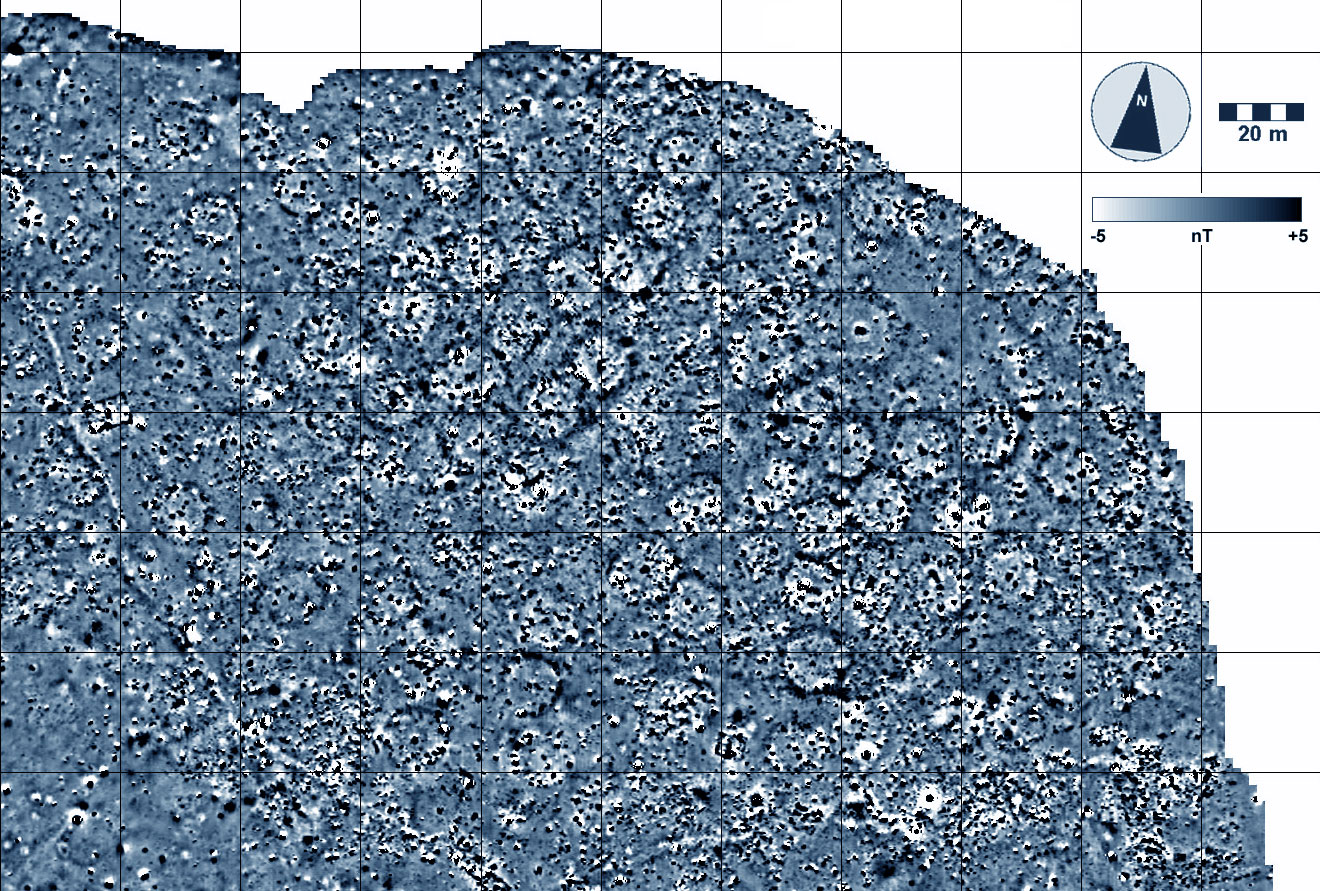Kvamme and Wiewel Awarded Park Service Preservation Grant

Magnetic gradiometry data recorded at the surface of the Mandan-Arikara village (ca 1822-1861) at the Fort Clark State Historic Site in 2011 by a University of Arkansas team lead by Kvamme and Wiewel. The larger circles point to the loci of former dwellings (earthlodges), the white line to the west and south corresponds with a defensive fortification ditch, and the many small anomalies (black "dots") indicate the loci of hearths, storage pits, and iron artifacts.
Kenneth L. Kvamme, professor, and Adam S. Wiewel, doctoral student, both of the department of anthropology in the J. William Fulbright College of Arts and Sciences, have been awarded a grant from the National Center for Preservation Technology and Training of the U.S. National Park Service.
Titled "Comprehensive Understanding of Archaeological Magnetism and Instrumentation," the grant investigates field methodologies and instrumentation to improve understanding of magnetic characteristics of the archaeological record.
The grant will do four things:
- Examine methodologies for distinguishing between thermoremanent anomalies (associated with hearths) versus induced anomalies (associated with cache pits and other features).
- Generate magnetic maps of excavated profiles of pits, hearths, house floors and ditches to enhance understanding of anomaly formation as recorded at the surface.
- Compare the performance of single coil and dual coil instruments for recording magnetic susceptibility.
- Investigate rarely examined magnetic characteristics of ephemeral hunter-gatherer camps.
This research takes place at the Fort Clark State Historic Site and the Double Ditch State Historic Site, in North Dakota.
Topics
Contacts
Kenneth L. Kvamme, Professor
Department of Anthropology
575-4130,
kkvamme@uark.edu
Headlines
PetSmart CEO J.K. Symancyk to Speak at Walton College Commencement
J.K. Symancyk is an alumnus of the Sam M. Walton College of Business and serves on the Dean’s Executive Advisory Board.
Faulkner Center, Arkansas PBS Partner to Screen Documentary 'Gospel'
The Faulkner Performing Arts Center will host a screening of Gospel, a documentary exploring the origin of Black spirituality through sermon and song, in partnership with Arkansas PBS at 7:30 p.m. Thursday, May 2.
UAPD Officers Mills and Edwards Honored With New Roles
Veterans of the U of A Police Department, Matt Mills has been promoted to assistant chief, and Crandall Edwards has been promoted to administrative captain.
Community Design Center's Greenway Urbanism Project Wins LIV Hospitality Design Award
"Greenway Urbanism" is one of six urban strategies proposed under the Framework Plan for Cherokee Village, a project that received funding through an Our Town grant from the National Endowment for the Arts.
Spring Bike Drive Refurbishes Old Bikes for New Students
All donated bikes will be given to Pedal It Forward, a local nonprofit that will refurbish your bike and return it to the U of A campus to be gifted to a student in need. Hundreds of students have already benefited.




